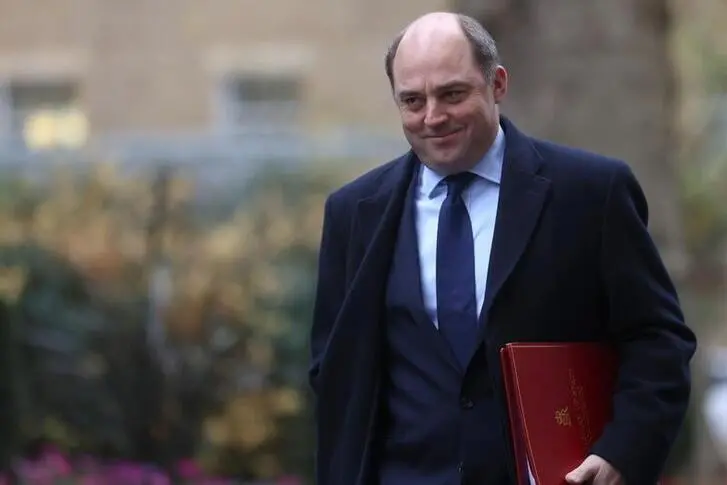PHOTO
Britain supports adding Ukraine to NATO and "that path is open" to them, although political realities may slow the process, Defence Minister Ben Wallace said on Friday on the sidelines of the Shangri-La Dialogue security meetings in Singapore.
He noted that it is not possible to add members in the middle of a war, and that the way forward was to continue aiding and arming Ukraine for both short- and long-term security.
"The best thing we can do to help Ukraine is now to help them defeat Russia," Wallace said in an interview. "After that is to make sure they're ready and capable and resilient."
Ukraine's membership of NATO, the North Atlantic Treaty Organisation, is on the agenda for the group's July summit in Vilnius, Lithuania. Ukrainian President Volodymyr Zelenskiy has said Kyiv wanted "a clear decision" on its accession at the summit.
Hanna Shelest, director of Ukrainian Prism, a think tank specialising in foreign policy and international security, said in Singapore that NATO membership would be a political decision.
"We are not expecting to see a strong decision (about Ukraine’s membership) at Vilnius," said Shelest, who is based in Ukraine. "But at a minimum we are hoping for a detailed roadmap."
Britain has, alongside other Western allies, provided Ukraine with billions of dollars' worth of assistance and weapons after Russia's invasion, which Moscow calls a "special operation". Most recently, London supplied Storm Shadow cruise missiles, which Wallace said had been 100% successful in striking targets.
Security assurances for Ukraine are also in play, Wallace said, noting that such guarantees could range from mutual defence pacts to providing arms and ammunition. There were few downsides to doing so, he added.
In Asia, he said Britain was committed to supporting the United States and its allies, and to maintaining freedom of navigation on the oceans. He noted that Britain had two warships in the region, and "that will inevitably grow".
He noted that helping Australia develop its next generation of submarines through the AUKUS agreement alongside the United States "is incredibly important for us all".
"The rise of China, the scale of China's military investment, inevitably ... encourages like-minded allies both in the region and indeed the world to work together even more."
Chinese Defence Minister Li Shangfu declined an invitation to meet U.S. Defense Secretary Lloyd Austin in Singapore.
Wallace, whose has been mentioned as a possible successor to NATO Secretary General Jens Stoltenberg, said that he "wouldn't say no if he was offered it", but that it was up to members to decide. (Reporting by Gerry Doyle. Additional reporting by Kanupriya Kapoor; Editing by Raju Gopalakrishnan)





















